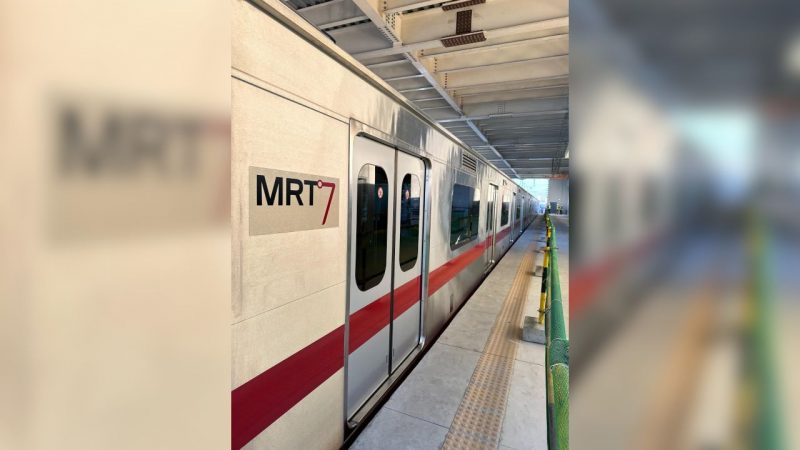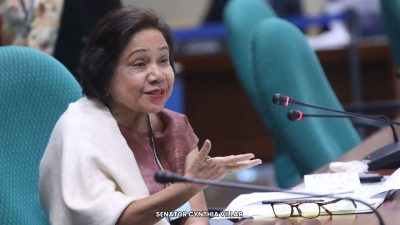MRT-7 is one of several major projects by the Philippine conglomerate San Miguel Corporation (SMC) where it has partnered with Korean firms. It will span 22.8 kilometers and connect Quezon City to San Jose del Monte, Bulacan.
MANILA — As part of the 75th-anniversary celebration of diplomatic relations between the Philippines and South Korea, Ambassador Lee Sang-hwa recently toured the facilities of the Metro Rail Transit Line 7 (MRT-7) project in Quezon City.
MRT-7 is one of several major projects by the Philippine conglomerate San Miguel Corporation (SMC) where it has partnered with Korean firms. It will span 22.8 kilometers and connect Quezon City to San Jose del Monte, Bulacan.
With a capacity to serve up to 850,000 passengers daily when fully operational, the project is highly anticipated for its role in improving urban transit and decongesting Metro Manila.
The MRT-7 team toured Lee around its depot in Greater Lagro, Quezon City, where the ambassador saw first-hand how SMC is using Korean technology in implementing the game-changing mass rail project.
“Ambassador Lee’s visit to our MRT-7 facilities highlights our partnership with Korean engineers and technology. This project, once operational, will serve as a symbol of the enduring friendship between the Philippines and South Korea,” said Ramon S. Ang, President and CEO of SMC.
He added: “Our Korean partners play a crucial role in advancing San Miguel’s major
infrastructure projects that help fuel our country’s economic growth, including in sectors like infrastructure, power, and water utilities. We look forward to sustaining and expanding this partnership as we pursue more nation-building initiatives.”
For the MRT-7 project, SMC is working with the Korean national railway operator, Korea Railroad Corporation (Korail), while another Korean firm, Hyundai Rotem, is supplying the trainsets.
Korail runs the various train lines in South Korea which crisscross different regions and cities, as well as metropolitan areas and commuter services.
SMC has also teamed up with Korea Water Resources Corporation (K-Water) for the operation and maintenance of the 218-MW Angat Hydroelectric Power Plant in Angat, Bulacan, and for the Bulacan Bulk Water Supply Project that provides potable water to Bulacan’s water districts, at the lowest rates.
For the NAIA modernization project, which SMC won via public bidding recently, Korea’s Incheon International Airport Corporation (IIAC) will serve as the technical partner, to help it implement the P170.6 billion initiative through a public-private partnership. IIAC operates the Incheon International Airport, which has been recognized as among the top airports in the world.
For his part, Ambassador Lee said: “I am very glad that San Miguel, an esteemed company here in the Philippines, has reliable and strong partnerships with Korean engineers. The construction of the MRT-7, for one, will significantly contribute to enhancing the mobility of Filipinos here in Quezon City and Bulacan.”
Lee also inspected the depot’s training facility, where MRT-7 operators and traffic controllers practice using a train simulator bought by SMC from Seoul. In July last year, SMC also sent 40 of its cadet engineers to train under the supervision of Korail.
After a walkaround at the depot, Lee proceeded to MRT-7 Station 4 in Tandang Sora to visit the station and inspect the trainset there.
“It is very much more than what I expected. As you look at this train, it is very modern and state-of-the-art, almost identical to the ones we use in Korea. I am very proud of our Korea’s humble contribution to this project through Hyundai Rotem,” he said.
(el Amigo/MNM)







